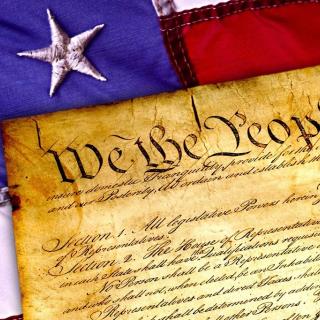Advertisement
Official vote counts in Ohio indicate a major defeat for the nation’s first corporate-sponsored marijuana legalization referendum.
But it’s complicated. And the ultimate issue is far from settled, as cannabis supporters are looking to 2016 to finally make pot legal here. Amidst the usual “glitches” in vote counting, the state election apparatus says Issue 3 was defeated by about 2:1. Ohio’s electronic voting machines usually “break down” somewhere in the state during a major election, and the reporting of this year’s results were subjected to the expected delays. Issue 3 was supported by a commercial cartel that spent $25 million pushing a plan to profit from legal marijuana sales. For a full pre-election discussion of the issue, listen to: http://prn.fm/solartopia-green-power-and-wellness-hour-10-29-15/
Issue 3 would have allowed private individuals to grow up to four plants at home.
It would have limited commercial cultivation to ten indoor “grow sites” of up to 300,000 square feet each. The crops were to be genetically marked to make sure sales in the state were limited to those sources. The cartel’s pot was to be sold in more than 1100 licensed outlets around the state. Annual revenues were projected to exceed $1 billion. Tax benefits were to be divided between the state and localities. Job creation was projected into the thousands.
Proponents included former basketball great Oscar Robertson, singer Nick Lachey, and descendants of the politically prominent Taft family.
Prop 3’s backers ran a steady stream of high-profile TV ads touting medical benefits, job creation and tax revenues. The sophisticated, expensive spots provided a surreal experience in a state where marijuana use has long been a taboo topic subjected to extreme right-wing scorn and official assault.
Prop 3 drew fierce opposition from the usual conservative supporters of marijuana prohibition, which has resulted in some 20,000,000 nationwide arrests for simple possession in the past four decades, and has disenfranchised a substantial core of the black and Hispanic communities. It was also opposed by the private prison industry, whose cash flow depends on a steady stream of arrested citizens.
Prop 3 divided the pro-marijuana community. Long-time pot advocates strongly objected to the idea that cannabis could be monopolized for the financial benefit of a small band of capitalists. High-profile pot proponents including singer Willie Nelson argue that marijuana should belong to the public and that cultivation and sales should be open and unfettered by monopoly growers.
Pot advocates here have renewed their long-standing pledge to put a blanket statewide legalization issue on the ballot, this time hopefully in 2016. But the process is cumbersome and expensive. The pro-pot community has begun to opt for complete possession decriminalization votes for small amounts of pot for personal use in local communities, most recently Toledo.
Ohio’s standing pot law is actually one of the nation’s most lenient, with possession of 100 grams (about four ounces) being a minor misdemeanor, with no jail time.
The failed corporate campaign did push the envelope with its high production ads featuring middle Americans and public figures advocating weed, some in terms of dire medical need. Conservative legislators are now talking openly about the need for a medical marijuana bill, though whatever they might pass is likely to be highly constricted.
The state’s dominant corporatists used the campaign as an excuse to foist Proposition 2, which passed by a substantial official margin. Prop 2 allows the state ballot board to screen future referenda from promoting any financial interest or “sin tax” it wants to ban, despite the will of the people.
Prop 2 was designed to kill the proposed marijuana cartel had it been approved in Prop 3. There was no such conservative uproar when corporate capitalists pushed through an amendment licensing casinos here in 2009.
The election also reeked of the usual electronic manipulation that’s marked all Ohio elections since 2004. This time it centered in Cincinnati, where voting machines simply stopped functioning and the state provided no provisional ballots. The ACLU got a court decision forcing the polls to stay open to 9 pm, beyond the official 7:30 pm closing time. The state delayed reporting its overall vote count until they were finished there.
Such delays are expected in a state where the 2004 presidential election was electronically shifted.
Ohio’s current Governor John Kasich was recently accused of selling pot to Reagan field campaigners in 1976 by Roger Stone, a long-time close advisor to Donald Trump and “veteran Republican strategist,” according to CBS News. Stone worked with Kasich in the ’76 Reagan campaign and became Chair of the Young Republicans in 1977.
Kasich and current Secretary of State Jon Husted have been fierce opponents of legal weed. Observers of the state’s electoral history repeatedly warned that in a reasonably close vote, strategic “break downs” in voting equipment would give the administration the space it might need to shift the outcome. This year was no exception.
Whether Ohio’s pot advocates get it together for a statewide initiative in 2016 remains to be seen. But there’s no doubt this year’s high profile, often bizarre corporate campaign for cartel legalization has pushed the pot prohibition debate into an entirely new realm.
Reporting from Central Ohio, Bob Fitrakis & Harvey Wasserman have co-written 6 books on election theft. Bob’s Fitrakis Files are at www.freepress.org. Harvey’s America at the Brink of Rebirth: The Organic Spiral of US History will be published in 2016.



